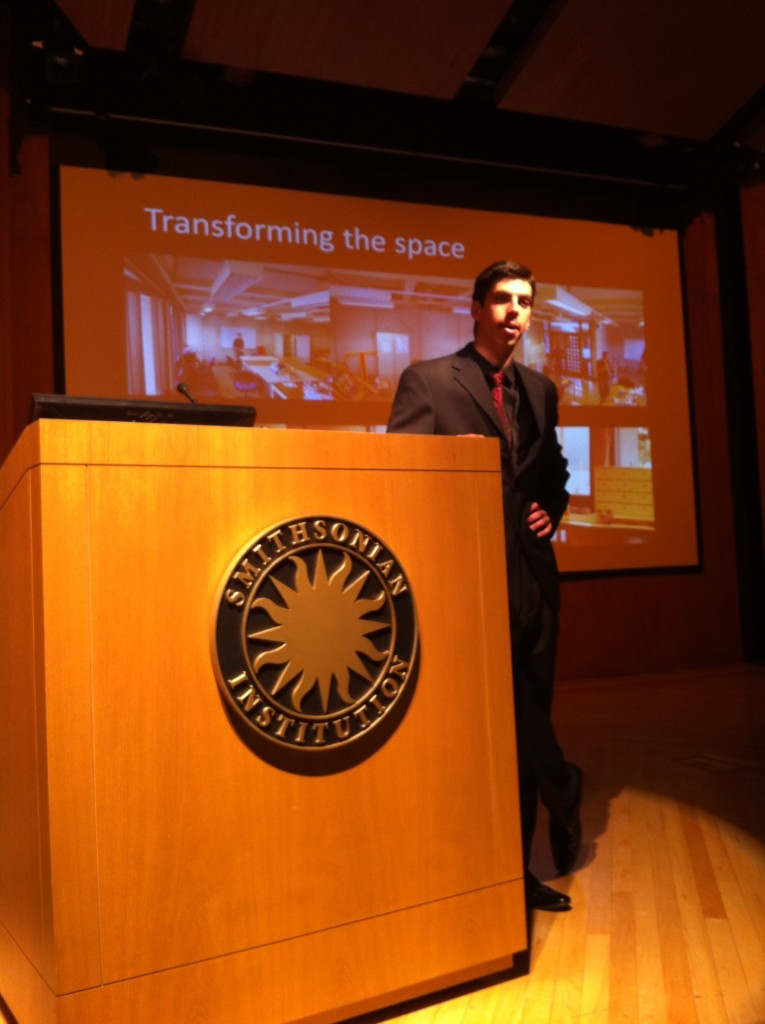58 U.S. Students Named University Innovation Fellows by NSF-Funded Epicenter
For Immediate Release
October 2, 2014
58 U.S. Students Named University Innovation Fellows by NSF-Funded Epicenter
Palo Alto, CA – Fifty-eight students from 26 higher education institutions across the United States have been named University Innovation Fellows by the National Center for Engineering Pathways to Innovation (Epicenter).
The University Innovation Fellows program empowers students to become agents of change at their schools. The Fellows are a national community of students in engineering and related fields who work to ensure that their peers gain the knowledge, skills and attitudes required to compete in the economy of the future. To accomplish this, the Fellows advocate for lasting institutional change and create opportunities for students to engage with entrepreneurship, innovation, creativity, design thinking and venture creation at their schools.
This new cohort of Fellows brings the total number to 168 Fellows from 85 schools. The program is run by Epicenter, which is funded by the National Science Foundation and directed by Stanford University and VentureWell (formerly NCIIA).
“It is so critical for students to have an entrepreneurial mindset in today’s economy. They need more than just technical skills to solve the big problems our world is facing,” said Humera Fasihuddin, leader of the University Innovation Fellows program for Epicenter.
“This mindset helps students learn to be flexible, resilient, creative, empathetic. They learn how to identify and frame problems rather than simply solving what’s put in front of them. With these skills, students will be able to leave school better prepared to tackle challenges and create new and fulfilling jobs for themselves and others.”
Individual Fellows as well as teams of Fellows are sponsored by faculty and administrators at their schools and selected through an application process twice annually. Following acceptance into the program, students complete six weeks of online training, where they connect with their new network, examine their current entrepreneurial ecosystems and formulate action plans to implement their ideas. Throughout the year, they take part in events and conferences across the country and have opportunities to learn from one another, Epicenter mentors, and leaders in academia and industry.
Fellows have created student design and maker spaces, founded entrepreneurship clubs and organizations, worked with faculty to design courses, and hosted events and workshops. In the last academic year alone, Fellows created 553 activities, 22 new spaces and 65 innovation and entrepreneurship resources at their schools.
“Fellows are having a powerful impact at their schools,” Fasihuddin said. “They are working alongside students, faculty and their university leaders to help all students learn an entrepreneurial mindset, dream big and pursue their career aspirations.”
Learn more about the University Innovation Fellows at http://epicenter.stanford.edu/university-innovation-fellows and http://www.dreamdesigndeliver.org.
About Epicenter:
The National Center for Engineering Pathways to Innovation (Epicenter) is funded by the National Science Foundation and directed by Stanford University and VentureWell (formerly NCIIA). Epicenter’s mission is to empower U.S. undergraduate engineering students to bring their ideas to life for the benefit of our economy and society. To do this, Epicenter helps students combine their technical skills, their ability to develop innovative technologies that solve important problems, and an entrepreneurial mindset and skillset. Epicenter’s three core initiatives are the University Innovation Fellows program for undergraduate engineering students and their peers; the Pathways to Innovation Program for institutional teams of faculty and university leaders; and a research program that informs activities and contributes to national knowledge on entrepreneurship and engineering education. Learn more and get involved at http://epicenter.stanford.edu/.
Media contact:
Laurie Moore
Communications Manager, Epicenter
(650) 561-6113
llhmoore@stanford.edu






